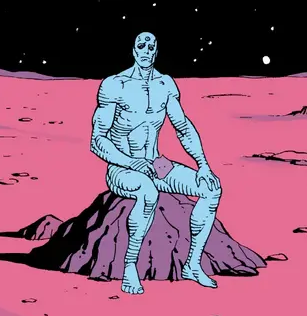

I think it would mean he became so mad that he crashed


I think it would mean he became so mad that he crashed


Lmao imagine watching DS9 and walking away from it idolizing Quark. Enjoy the smell of your own farts


In addition to other things said in this thread, I highly recommend watching this video for a non-western perspective on the matter.


Have you heard from the doctor yet and I am going to be in the office for a few days and I will be there around 10 or so after work for you to get the car and I will be there around 10 if you want to come over and pick up the kids and then go to the store and then go to the store and then go to the store and then go to the store and


Please stop making sequels and remakes. I’m begging you
Give it back to who? The slave owning Dalai Lama? Fuck off, it wasn’t stolen, it was liberated.


I just recently watched a video on this subject. The video itself wasn’t very illuminating about the subject, but a pinned comment was:
Pinned by The Morbid Zoo @ssoftiss 2 years ago Thank you for your video, I agree with a lot of your points. What I think did get lost in translation might be some of the references to Japanese history and common current mindsets in Japan. You mention how it is not easy to identify whether the Eldians are supposed to represent Germans or Jews. Actually I think they are supposed to represent the Japanese … and that is not a good thing.
A summary of ‘sakoku’ in Japanese history: Medieval Japan (think Samurai-Era) felt threatened by trade from Europe (Portuguese, Dutch…) who also tried to bring Christianity to Japan. The feudal government at some point closed of the Japanese borders completely and only allowed very limited contact to the outside world. I hope the parallels to Eldians on Paradis Island are obvious enough. Interestingly, many Japanese feel that this step was not a free choice but a last resort to protect Japanese interests. As we all know, the Industrial revolution brought on a rapid technological advance in the western world. Japan was closed off for about 200 years, until the US decided that they were going to force Japan into opening their borders - with their advanced weapons. Just like Paradis is confronted with being wiped out by their soon to be technologically advanced enemies.
Japan during WWII and ethnic uniqueness: In Japan during WWII there was a strong propaganda to create the belief that there is an inherent Japanese-ness which is still prevalent today, not only with far-right activists. If you study any Japanese art you often come across the mindset, that only Japanese might ever be able to fully understand that certain art - simply because they are Japanese, and outsiders may never reach that level. In AOT the Eldians are genetically different from the rest of the world.
Contemporary Japanese views on WWII: The Japanese school system does not include a lot of WWII lessons. So for most regular Japanese citizens, their knowledge about WWII and especially the war crimes is not very broad. This strenghtens opinions like ‘my generations has had nothing to do with this war, so there is no reason for apologies or reparations nowadays’ or ‘It’s all in the past and has nothing to do with today’. Even though there are still ongoing conflicts (e.g. South Korea and sexual slavery, euphemically called the ‘comfort women issue’). Such beliefs foster a victim mentality. And in the case of AOT, I fear this was translated into showing the Eldians as being discriminated against - comparing them to how the Jews were discriminated. Which would be quite a sickening comparison.
To sum it up, Isayama did portray the Eldians as being on an island nation that is technologically not as advanced as the rest and is thus confronted with an outside threat of being eliminated. This is so close to actual Japanese history that it is not far-fetched to think that Isayama is protraying Eldians as Japanese. Isayama also portrays Eldians as the victims of discrimination, going so far as to bring in themes of how the Jews were treated during WWII.
I think the ending actually made it clear that Isayama - even though he might not be a full on right-wing nationalist - is leaning towards some of the arguments that are right-wing. The ending shows that Armin sympathizes with Eren’s decision - because he did it ‘for the greater good’. Being a fascist does not only mean being cruel just for the sake of being cruel - it also means to justify cruel actions by it being for a greater good. And that I think is exactly what the ending of Attack on Titan is doing.
I too have been defending AOT since the beginning. But rewatching the series now, I feel like I interpreted many things too liberal, because that was what I wanted to see. Take that scene, where so many refugees are sent back outside the walls because the government was afraid of a food shortage. Reviewing that scene I think there is already an undertone of it being for ‘the greater good’, of it being a necessary evil and thus - justifying such a horrenduous act.
Same goes with the scene where Erwin decides to order his soldiers to give their lives, just for Levi to have a chance to attack Zeke. Rewatching this scene, I think it actually was portrayed again as a necessary evil. And that would be fascist. Just like how in real Japan during WWII air pilots were ordered to fly their planes right into the enemy, the infamous Kamikaze.
I’m sorry this got so long, no one I know watches the show and I needed an outlet for all of my thoughts after reading the last chapter of the manga.
I think if you consider these points, the ending should not have come as such a big surprise. I really should have seen it coming unfortunately…


Fr. Drunkelstein 


This guy gets a pretty good shot of what they look like in xinjiang, pretty good video: https://m.youtube.com/watch?v=dHxzLogzqkU


When you don’t like the way the market capitalisms


Surely there’s an instance somewhere of the government suing itself 


Might’ve been usa putting nuclear weapons in Turkey in 1959


Literally looking at any fucking moment in the last 100 years would demonstrate that every intervention on the part of the West led exactly to this current moment





AI art, peep the hands and the legs crossing


What kind of socialism is able to simultaneously be socialist while excluding exploited and oppressed peoples? What kind of anarchy persists as anarchy upon the backs of those whose homes have been stolen from them?


As far as I’m concerned, rtf docs can accomplish everything pdf’s set out to do. I don’t see why basic documents need to be rendered in vectors 


Kind of the opposite of what you’re asking for, but I hate pdf and wish it would go away. It’s an awful file type to have to work with


Heh, I did it anyway 
Any effect these measures may have will be easily circumvented by a VPN